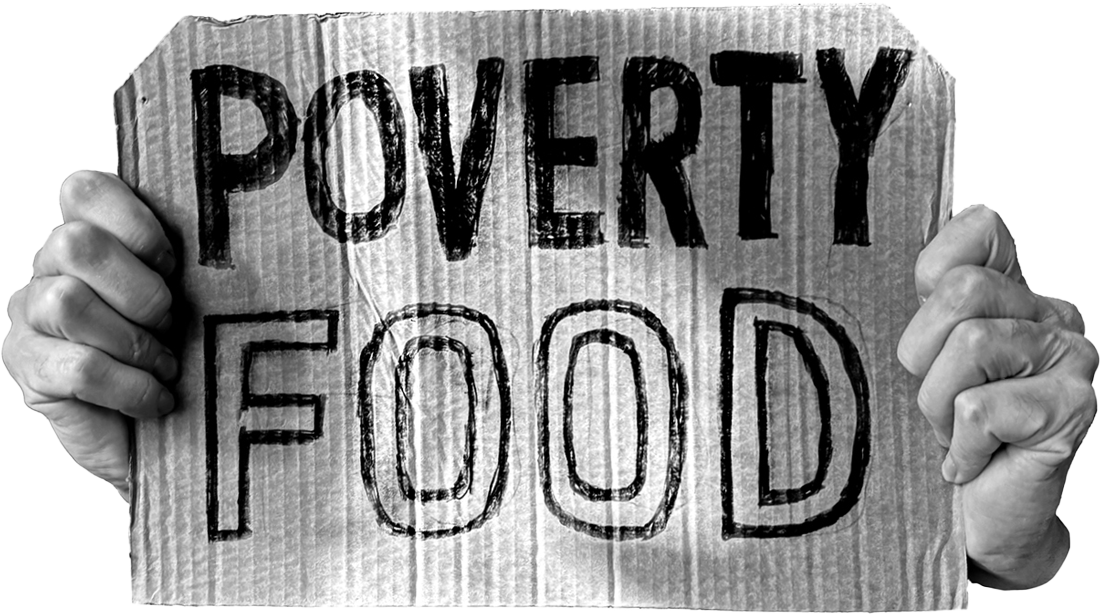
Online TBC

People suffering chronic poverty must find food to eat. Poverty foods have varied across time, place, and culture, ranging from the products of subsistence agriculture and foraging to mass-produced industrial foods. The recent rise of starvation as a weapon of war and oppression has lent increased urgency to the theme of Poverty Food, chosen in 2023 as the topic for the 2026 Oxford Food Symposium. We invite proposals on this theme from any number of disciplines and especially welcome approaches exploring how lived experiences of poverty translate into dietary practices
Humans find creative ways to feed themselves in the face of deprivation. Proposals might consider cucina povera – simple dishes, often plant-forward, offal-based, or featuring ingredients ignored by cuisines of affluence. We welcome explorations of these foods’ cultural and gastronomic qualities.
Many dishes from cucina povera have been embraced by elites, driven by interest in eating nutritional ‘superfoods’, avoiding waste through ‘nose-to-tail’ eating, or gaining the supposed cachet of culinary cosmopolitanism. Quinoa’s newfound popularity in the Global North has disrupted traditional practices in Andean communities, and proposals might explore similar realignments caused by the surging popularity of once-humble foods.
Meeting the challenges of finding food can also involve freeganism, gleaning, foraging, repurposing leftovers, and begging. Proposals might consider these tactics – and whether forms of communication like social media help those with limited options to improve their diets.
As such tactics suggest, hunger has often coexisted with abundance. Proposals might study seasonal scarcity – whether related to agricultural calendars, damaged food systems, or cultural or religious fasts – or interrogate industrialized food systems, in which people without access to adequate markets, available time, and functioning kitchens become dependent on calorie-dense, nutrient-poor ultra-processed foods. The negative health effects of such foods – including the new combination of childhood obesity and malnutrition – fall heavily on those with fewer economic resources.
Those economic resources have often been distributed inequitably. Proposals might examine past attempts by communities, states, or empires to meet people’s needs, ranging from the organized importation of grain into the ancient Mediterranean, to the English Enclosure Acts, to Mao Zedong’s calamitous Great Leap Forward. The tragedy of the commons, externalization of costs, and neo-Malthusian theories continue to influence debates on food systems. As food support programs have come under attack, proposers could think of how social justice demands might be met.
Nutritionally poor and inadequate crops come from impoverished soils, and organic and regenerative agricultural techniques may enhance crop quality. Proposals might consider whether such methods can deliver what they promise, either integrated into or supplanting industrialized farming, especially in regions where many live below the World Food Bank’s poverty line.
Struggling to find food takes a psychological and emotional toll. Proposals might explore such costs, investigate the sociological and cultural dimensions of the ‘poverty meal’, or consider what it would take for such food practices to be culturally valued.
We invite everyone to submit proposals addressing these and other dimensions of Poverty Food.
Propose a paper
The Oxford Symposium on Food and Cookery invites anyone with an interest in food and its history to submit a paper for consideration. The Symposium maintains high standards regarding content, however has a longstanding tradition of quirky openness to all things, including seemingly non-academic topics. To learn more about the process and requirements click the button below.
